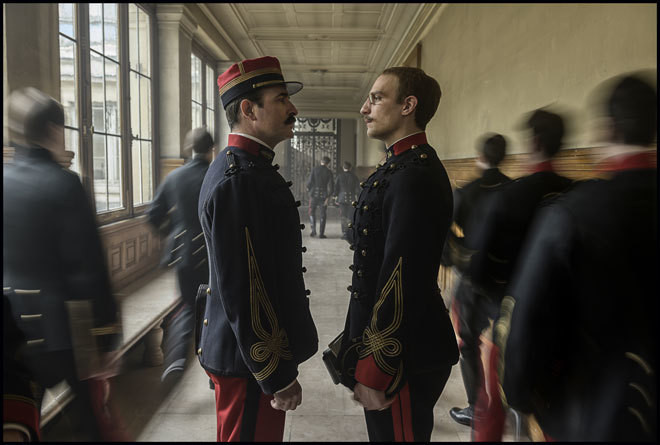The Polish director premieres 'The officer and the spy', a drama about the Dreyfus affair
Criticism: The officer and the spy: adjustment of accounts
Roman Polanski (Paris, 1933) has been persecuted by controversies for a long time. Now, in The Officer and the Spy, the director of tapes such as The Seed of the Devil , Chinatown or The Pianist rescues one of the most controversial episodes in French judicial history.
Why did you want to do something about the Dreyfus affair? Great stories tend to become great movies and the Dreyfus affair is exceptional. The story of an unjustly accused man is always fascinating, but it is also a very current issue if we consider the resurgence of anti-Semitism. What then is the origin of this project? When I was young, I saw The Life of Émile Zola , by William Dieterle (1937) and the scene in which Captain Dreyfus is degraded struck me greatly. Then I told myself that one day I would make a film about that terrifying story. Is it true that you were encouraged to shoot this film in English and not in French? When, seven years ago, I proposed the project to my partners, the idea excited them . But they thought it was essential to do it in English to obtain international funding, especially in the US. It is true that American films set in France are always made in English. In fact, Émile Zola's life is a good example. It was easier to sell them in international markets. But the truth is that I didn't see all those French generals speaking in English. The current audience is more sophisticated and more willing to watch feature films and television series in their original language with subtitles. How did you develop the project? Robert Harris, the screenwriter, was very excited about the idea, so we got down to work immediately. At first, it seemed obvious that we should tell the story from Dreyfus's perspective, but we soon realized that it would not work: all the action, with its many characters and turns, took place in Paris, while our protagonist was stuck on Devil's Island. The only story we could have told would be his suffering. We went around it a lot and in the end we thought it was better to leave Dreyfus on his rock and tell the story from the point of view of Colonel Picquart, one of the main characters in the story. Later, Robert and I saw clearly how we wanted to tell this story. Why did you choose Jean Dujardin? Jean seemed perfect for the role of Picquart. He looks like him, has a similar age and is a great actor. A movie of this size needs a star and Jean Dujardin is. In fact, he has won an Oscar! And how would you describe Colonel Picquart? Here we see him as a single man, with a lover (who plays Emmanuelle Seigner) married to a senior official. He is portrayed as a social outsider and a "natural anti-Semitic," as people were at the end of the 19th century. However, it is he who involuntarily saves Captain Dreyfus. Picquart is a fascinating and complex character. It is not an active anti-Semite. He does not like Jews, but it is more by tradition than by belief. He is a counter-intelligence officer and, when he discovers that Dreyfus is innocent, he takes the case very seriously and decides to unmask the truth.According to the criteria of
Know more

